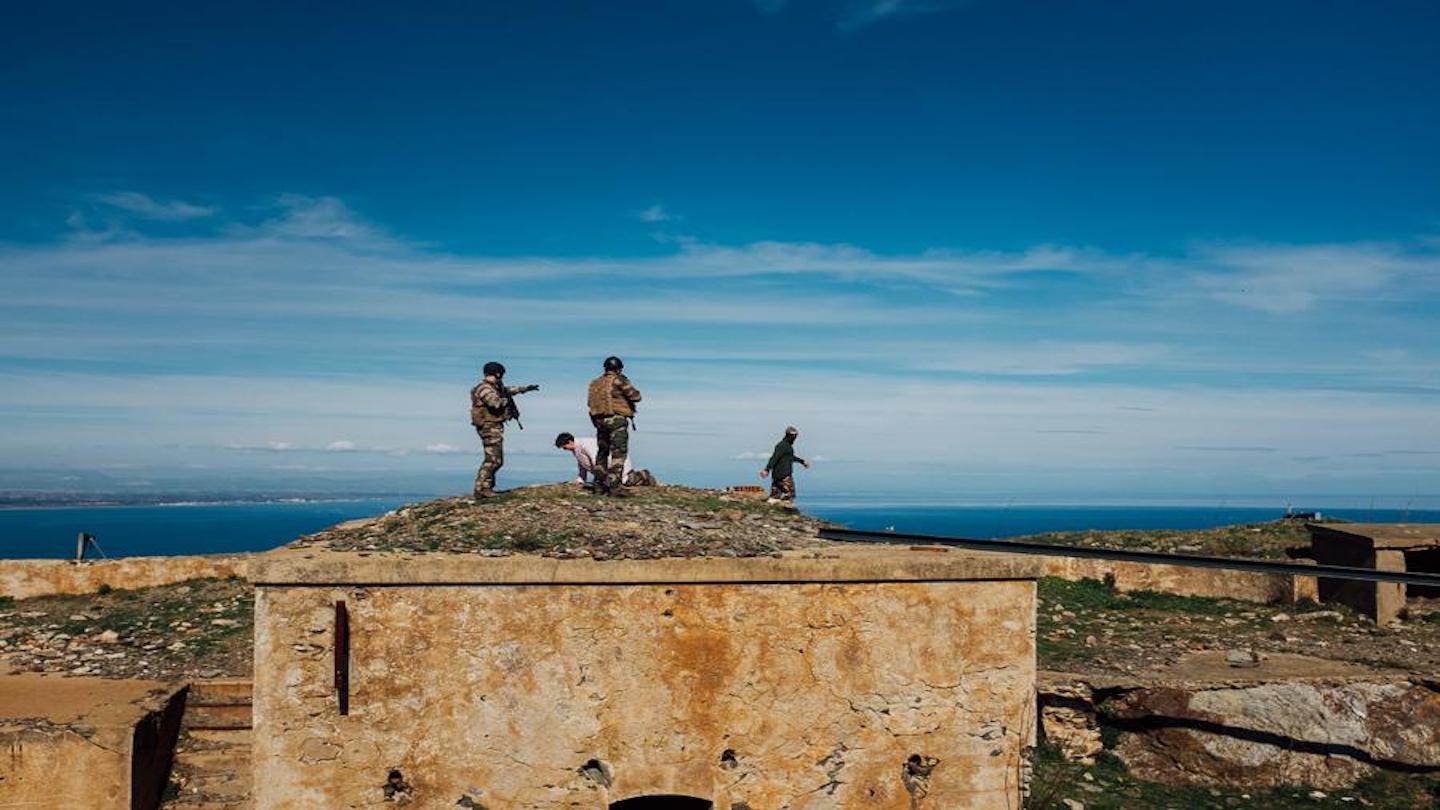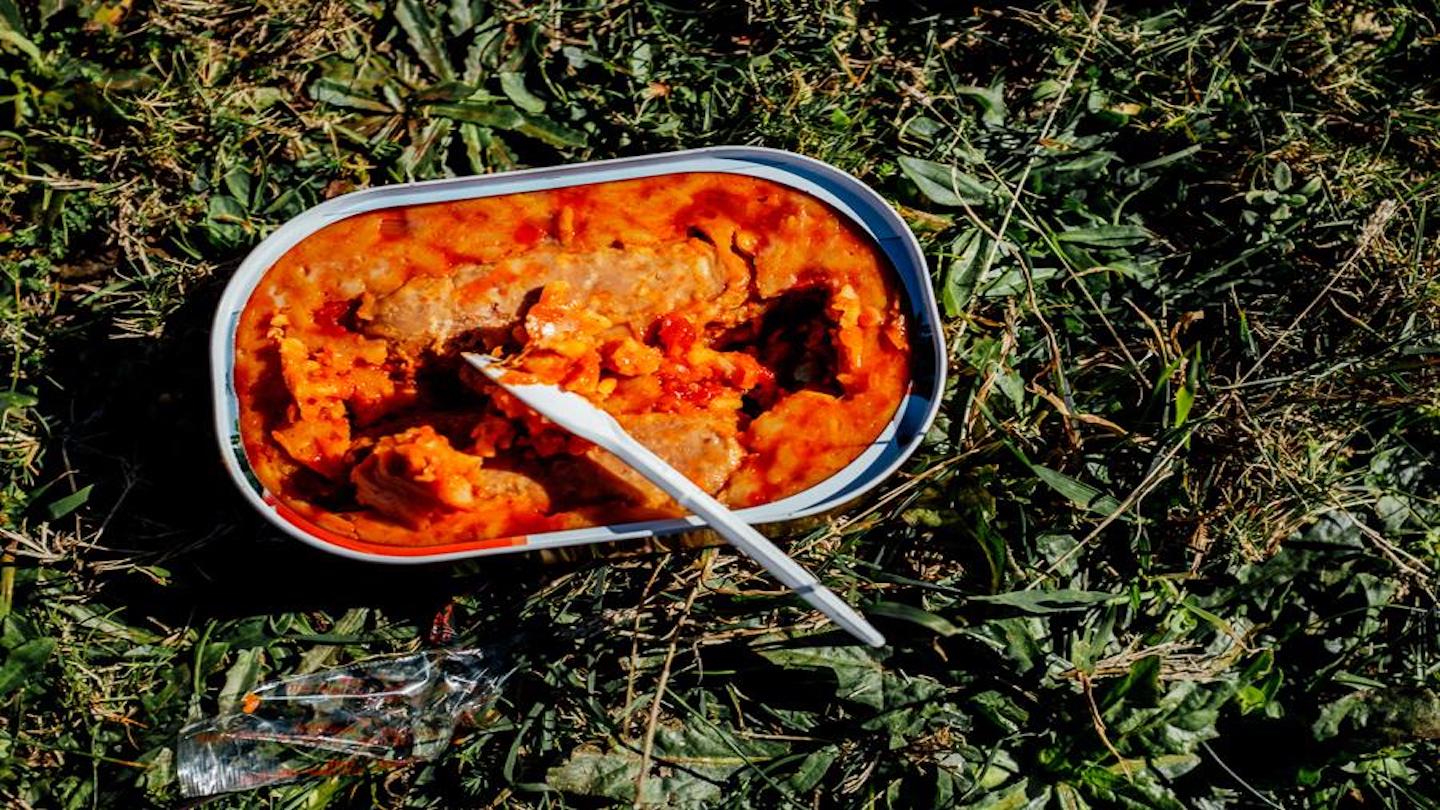This article originally appeared on VICE France
All photos by Lucien Lung
Videos by VICE
“It’s not the weapon that’s dangerous,” the commanding officer said, peering down on a group of tired and, frankly, scared journalists. “It’s the idiot holding that weapon.”
The 21 of us taking part in this War Reporter Awareness Training Programme, organised by the French Ministry of Defence, would never dare argue with him in the state we were in. We had spent the day marching through the hills around Collioure, a town in the eastern Pyrenees, and we were subjected to a physical regime none of us had faced before.
It was with good reason, though – the training programme was set up with the aim of giving journalists the fundamental knowledge and skills required to work in conflict zones, either in the company of a military force or on their own. Since its launch, more than 600 journalists have been taught basic first aid training – like how to apply a tourniquet or an emergency bandage – and have learnt from highly decorated officers what mental and physical techniques they can use to respond quickly and efficiently in moments of sudden, extreme danger.

Reporters in a war zone – armed with nothing but a dictaphone, a camera, a bullet-proof vest and a keen sense for a story – can be a liability to the military forces they travel with. More specifically, we’re a liability to the army communications officers tasked with protecting us. A study by Reporters Without Borders, a non-profit organisation set up to promote the free press, found that 74 journalists were killed in conflicts in 2016 – about half the number of those who died in 2015. Thankfully, most media companies are happy (and quite possibly relieved) to send their journalists to train with the army, but many freelance reporters are forced to cover the costs of this kind of essential and possibly lifesaving course themselves.
It won’t come as a surprise to anyone that when we arrived at the training grounds, it was fairly easy to distinguish between the journalists – pale, inadequately equipped, bodies shaped by excessive amounts of beer and physical neglect – and the soldiers; their faces hardened by a career of staring down the enemy. The latter had quite a task in taking our physical unfitness and general sense of bewilderment, and turning us into people fit to enter war-torn territories in just one week.

We spent the first night under the stars, lying on the cold, wet tarmac. We woke up at 5AM for some exercise intended to warm us up – but those warm-up exercises consisted of more squats, press-ups and planks than I’d done all year. And as if that wasn’t enough of an attack on my physique, the food rations also went a long way to try to right what a life of thrice-weekly takeaway had wronged.

But I noticed that as the pain and torture increased, so did the mutual respect between soldiers and reporters. “I couldn’t do what you are doing,” an intelligence officer told me. He couldn’t imagine why we were so eager to enter conflict zones unarmed, clearly marked as easy targets.
I was amazed by the level of self-control and focus shown by the officers training us to save our own lives – and they showed us how vital those two things are when you want to survive in these kinds of circumstances.

We spent that week shooting at targets that would never fire back at us, and we knew that although we had some better chances at survival now, we’d never be able to tell the kinds of heroic stories our officers were able to tell.
But, at the very least, as the commanding officer confirmed on our last day – we weren’t as stupid as we had been at the start of the week. “You’re all just a mild pain in the ass, now,” he said before waving goodbye.
More
From VICE
-

(Photo by Selcuk Acar/Anadolu Agency via Getty Images) -

Illustration by Reesa -

Illustration by Reesa -

Illustration by Reesa
